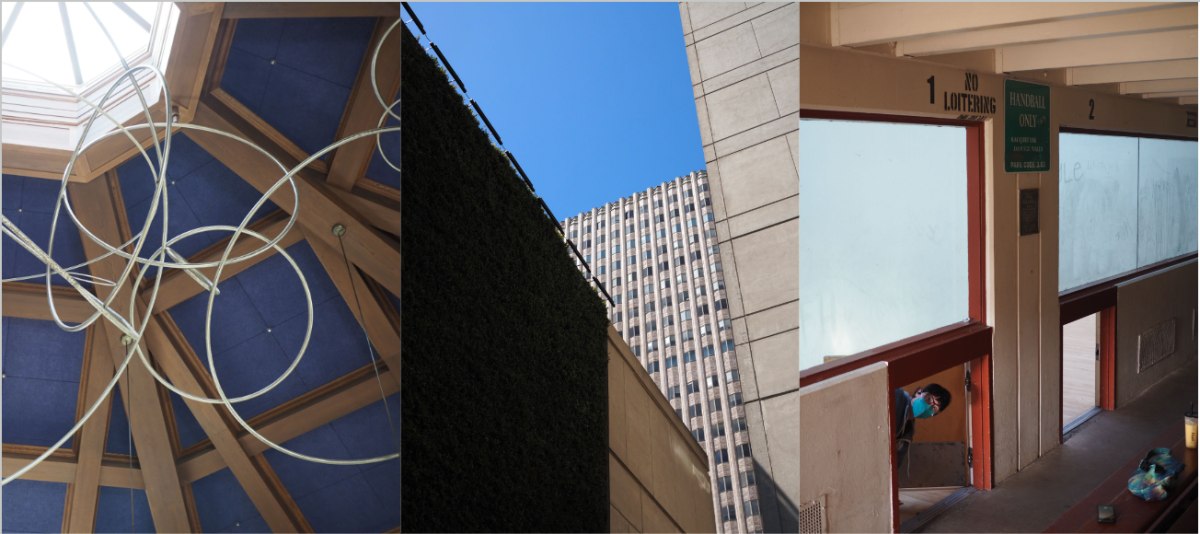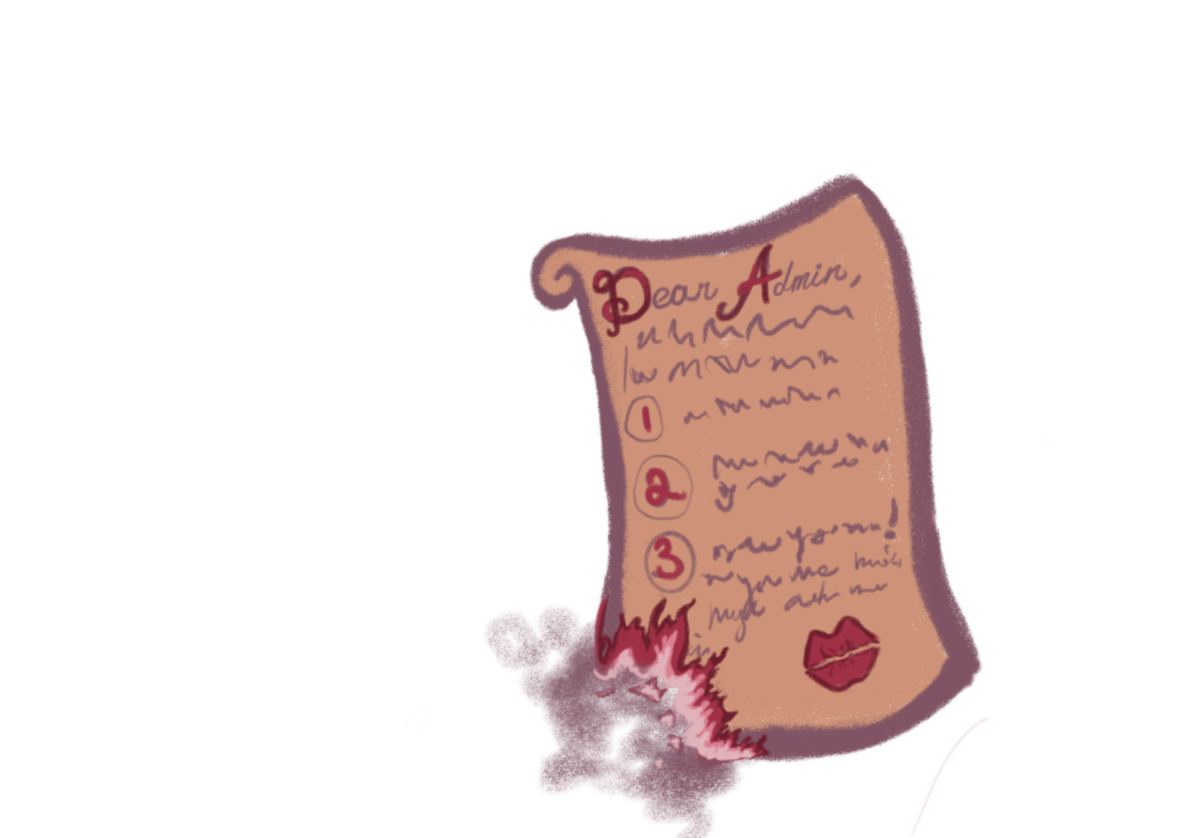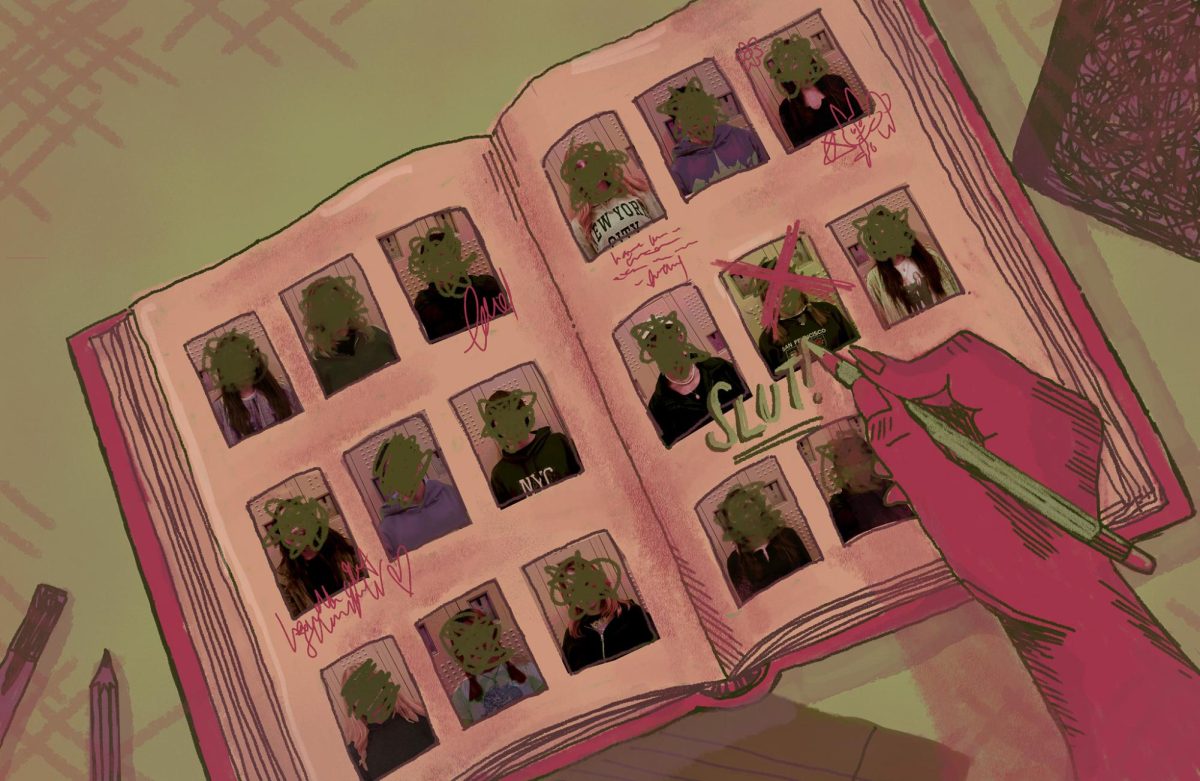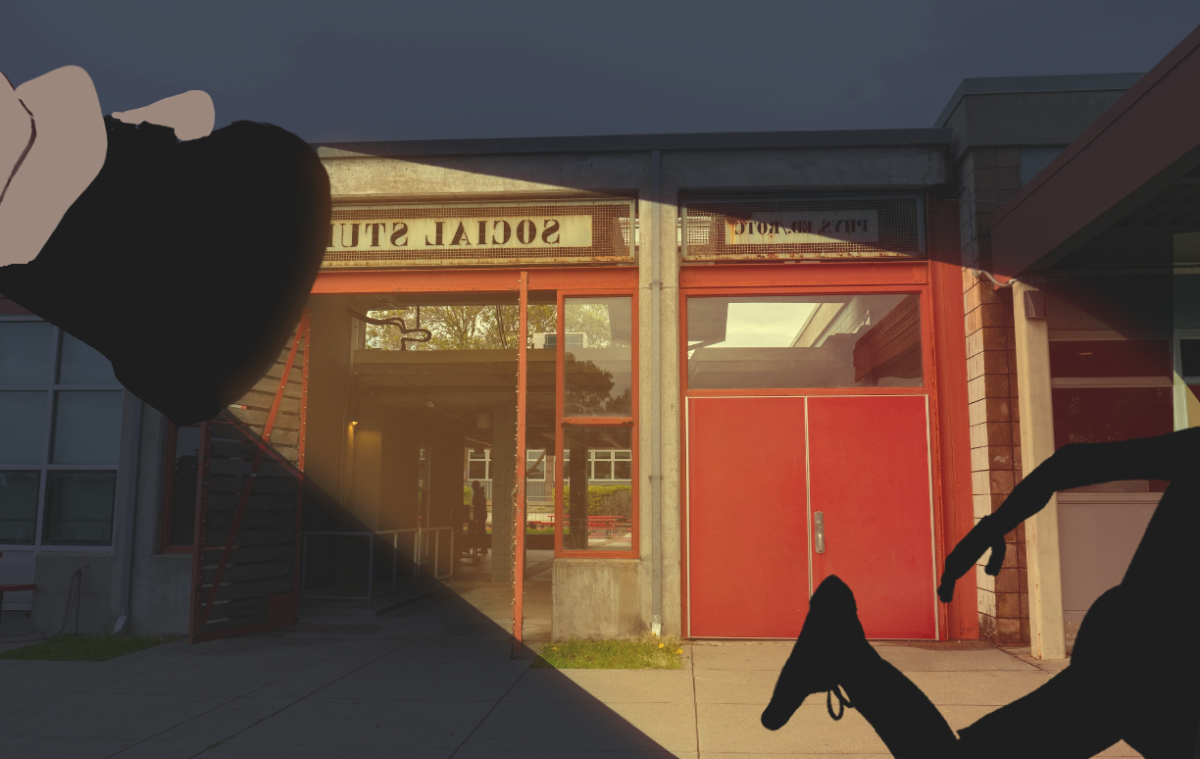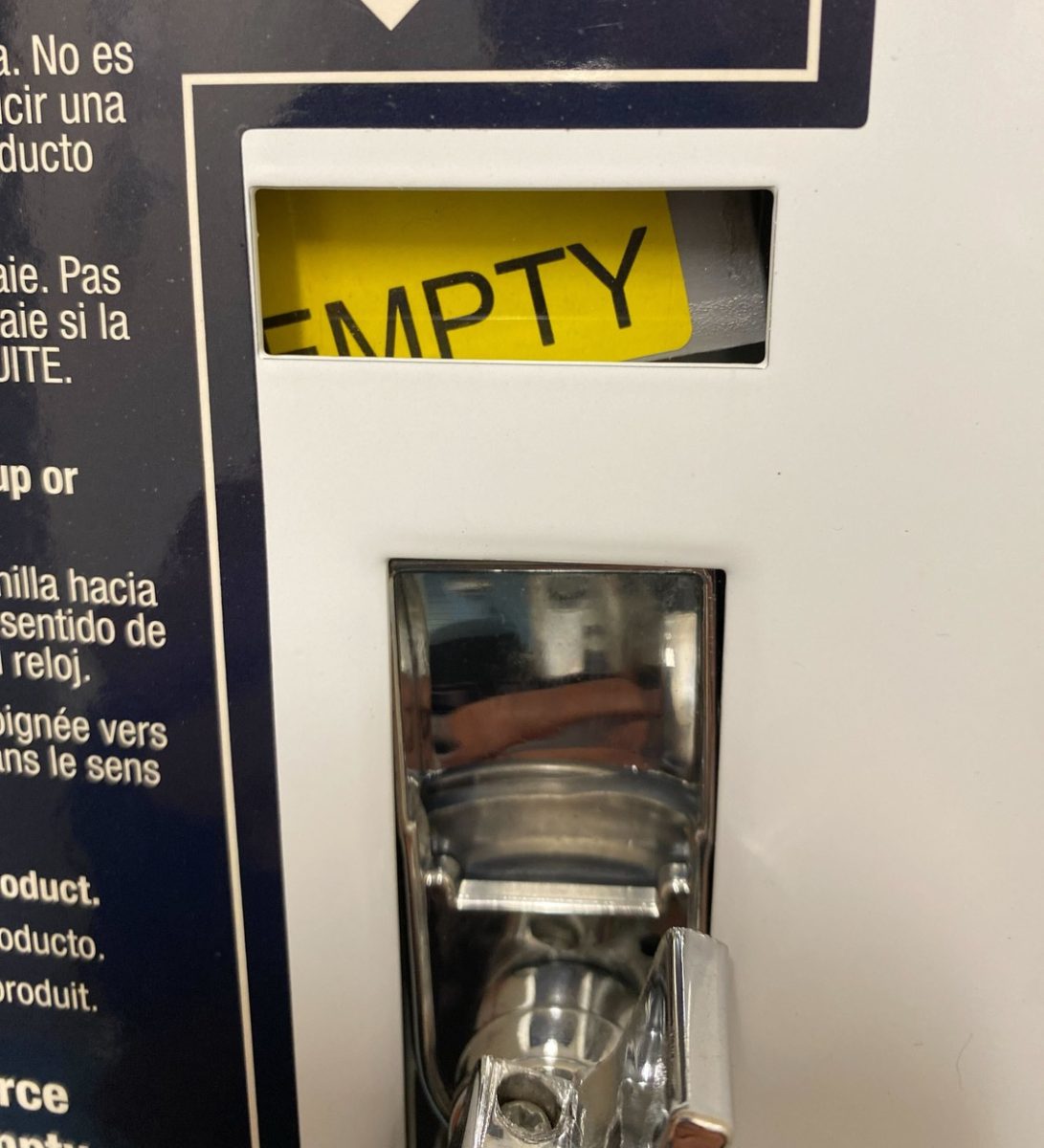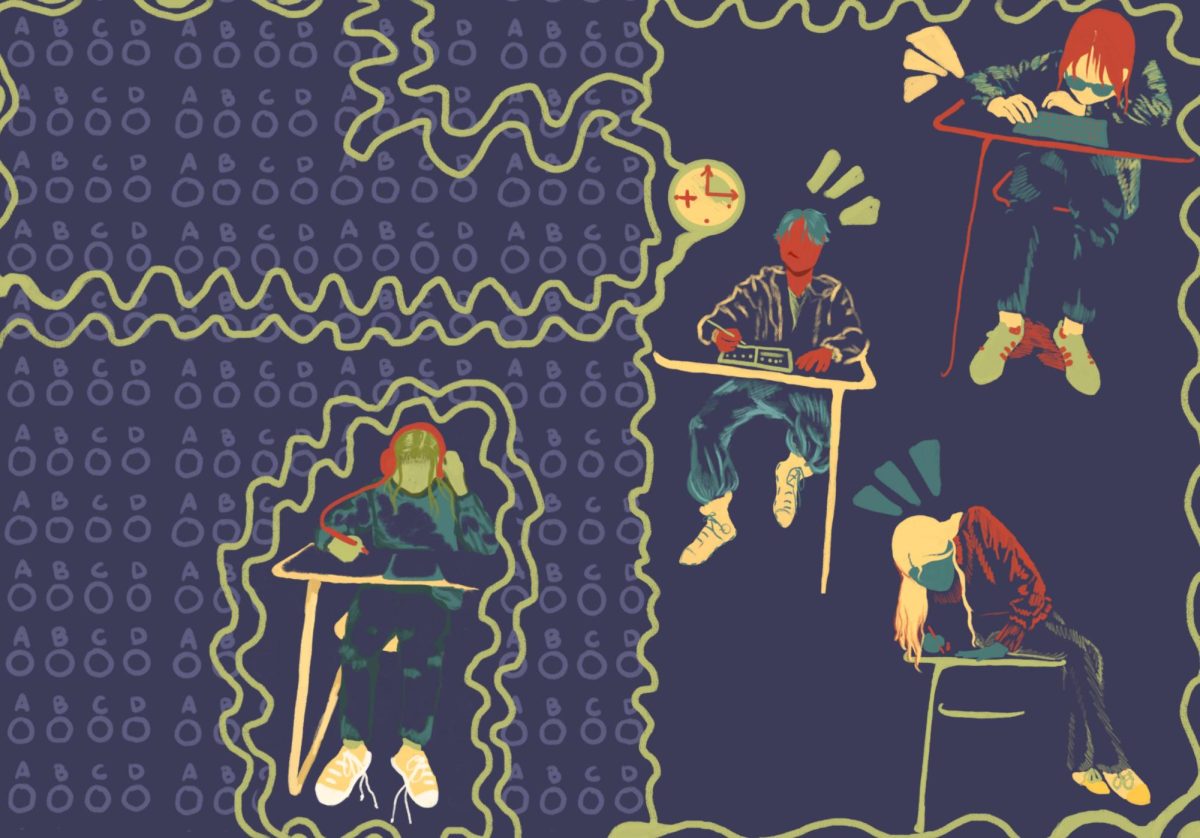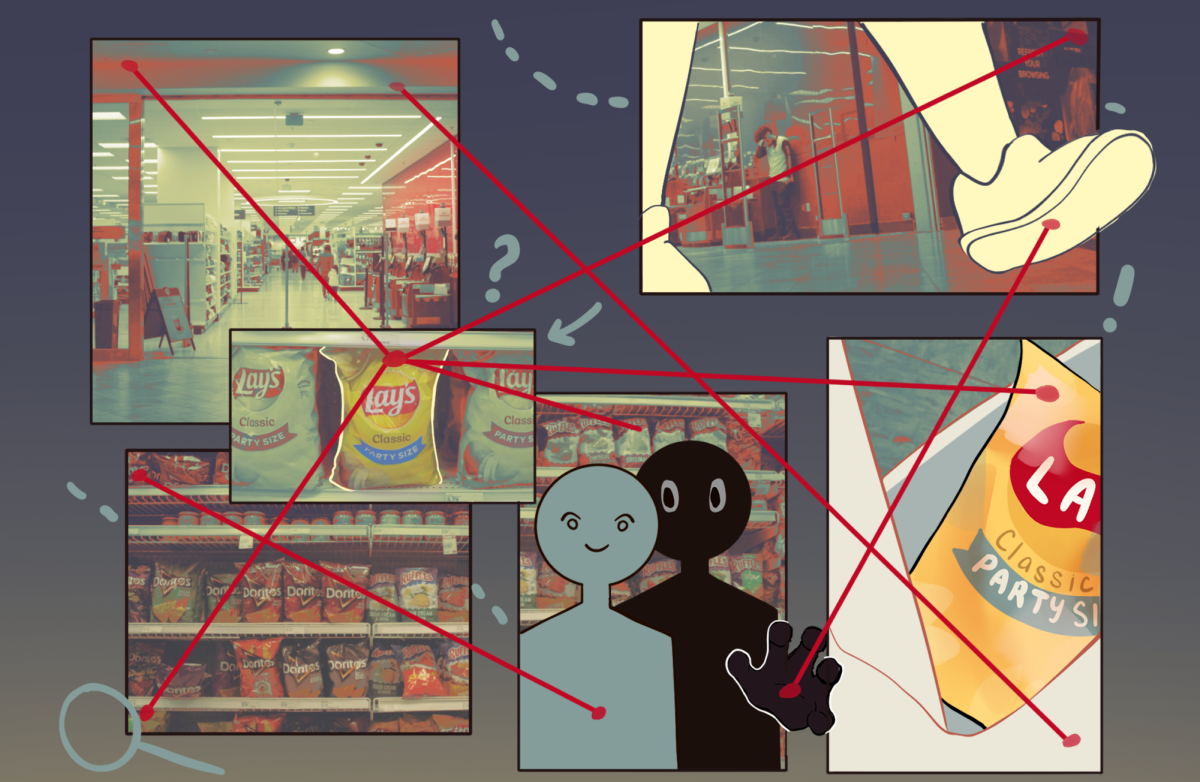Originally published on June 2, 2015
“Sound speed?”
A crew member checks to make sure that the sound works. “Speeding.”
“Camera speed?”
The cameraperson glances at the camera. It’s rolling. “Speeding.”
At senior Ruby Drake’s command, another crew member snaps the clapper shut. “Action.”
Shooting a video may seem pretty straightforward: get a camera and press record. To Drake, however, filmmaking is not such a simple process, but a multifaceted art that requires a great deal of time and commitment.
“I decided to try the class for a day and now I can’t imagine life without it.”
Some of Drake’s more recent short films have been featured at a plethora of film festivals, and a few of these films have won awards. Her 2012 short comedy “On the Fence,” which follows a teenage boy as he makes his way across several people’s backyards to avoid being caught by his girlfriend’s mother, won several film festival awards, such as Best Comedy at the Chicago CineYouth Film Festival (2013) and Best Film at the Ohlone College High School Theater Festival (2013). “On the Fence” also earned Drake the Film School Merit Scholarship, which offers a full $2000 scholarship to Prodigy Camp, a film and music camp near Seattle that she attended last summer.
Drake’s 2013 short drama “Overflow” has also been a success, earning her awards and spots at prestigious film festivals such as the National Film Festival for Talented Youth (2014). The short film sheds light on the conflicts of people who question their sexuality, as it centers around two girls, initially friends, who discover romantic feelings for each other.
Drake has been making films since she started participating in the San Francisco Art and Film Program for Teenagers during eighth grade. “My mom discovered that SF Art and Film had a film workshop,” Drake said. “I had always liked using my mom’s video camera but hadn’t really considered making films beyond that. I decided to try the class for a day and now I can’t imagine life without it.”
“You have to be able to accept the fact that what you have in front of you will never be what you imagined it to be.”
When Drake was 14, she produced her first short film for which she set up the necessary equipment and asked friends to act for her. “It was this terrible short about an argument between a mother and her daughter,” she said. “Nothing was in focus or lit correctly, the sound was bad quality and the lines were very cliche.”
Since producing this first video, Drake has brought a variety of short films to life — comedies, dramas, even split-screen films. “Most of my films, or at least the ones that I consider most important, are based on real stories that some of my close friends have told me,” she said. “When I write the script, I can relate to them as I can relate to myself, and that’s what hits really close to home. A lot of times I’ll change the story so that it has almost nothing to do with the original, but the theme stays the same.”
“The best part is getting to see what your project came out to be, thinking of all the little steps along the way, and reminiscing about funny moments on set.”
Filmmaking requires a tremendous amount of passion, patience, and dedication — all of which Drake embodies. Although Drake manages to balance filmmaking with school and daily Pacific Rowing Club practices, she admits that she doesn’t have much free time and gets little sleep despite having good time management skills. It takes Drake months just to write, produce and wrap up a short film, especially as she finds it difficult to articulate the themes and images in her head and flush out abstract ideas in a way that would allow them to fit into a specific storyline. Drake takes about three months to write a script, a few days to film, and around a month to edit. Her crew and funding comes from the SF Art and Film Program.
In addition to these challenges, Drake must also find actors who are able to accurately portray her characters. She casts inexperienced actors primarily through a website called SF Casting since they are willing to work for free. Drake uploads a character description on the website so that those who are interested in auditioning can respond with their headshot and resume. She then picks a few actors to come in for a screen test, where she introduces herself and her project more thoroughly and runs through a couple of scenes. When Drake goes through a scene for the first time, she gives the actors little instruction to see how they would naturally act. She then runs through the scene again with more specific directions to evaluate how each actor responds to her directing.
“When I write the script, I can relate to them as I can relate to myself, and that’s what hits really close to home.”
Working with actors who are used to acting on stage can be challenging, as they may over-act since they tend to be unaware of the subtleties captured on camera, according to Drake. “You have to be able to tell the actors exactly what you want them to do and make sure they can understand you,” she said.
Drake considers the first-time viewing of the final project both the best and worst part of filmmaking. “You have to be able to accept the fact that what you have in front of you will never be what you imagined it to be,” she said. “But at the same, the best part is getting to see what your project came out to be, thinking of all the little steps along the way, and reminiscing about funny moments on set.”
“It’s important for me to be able to make a living working in the film industry instead of just being a starving artist.”
Drake plans to pursue her ambitions in New York after graduating high school. She has decided to attend Columbia University, where she plans to study a combination of film studies and creative writing. Drake wants to start taking on internships and continue making her own short films in college, starting out as a production assistant or assistant director and working her way up toward becoming a director or executive producer. A director’s primary job is to work with the actors to determine how the story will be brought to life, while a producer is responsible for organizing the movie’s budget.
Drake considers herself both a director and a co-producer on her own sets, although her film program instructor provides guidance and helps with limited financial resources and arrangements for film festivals. “Ideally, I would be able to write and direct my own films, but I have to realize that I can’t just walk into Hollywood and expect to magically become a director,” she said. “It’s important for me to be able to make a living working in the film industry instead of just being a starving artist.”



